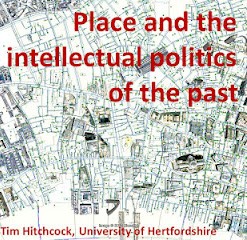Currently there is a rather wonderful raproachment between historical geographers and historians; with archivists and librarians (as usual) providing the meat, gristle and spicy practical critique. This is brilliant. These are cognate disciplines which need to be in constant dialogue. The habits of mind and analytical tools of geographers need to inform our understanding of the past; while the mental ticks of the historian, and the authority of history as a literary genre, are necessary tools for communicating all kinds of memory to a wider audience.
….Together, text as data and user friendly GIS make it newly possible to imagine an environment in which geographical information, and display, form a natural and unproblematic component of every other analytical process. It makes possible a situation in which historians cease to be mere text merchants, obsessed with the perfect quote, and compelling (if largely un-evidenced) argument; and where geographers have a new access to the subtle mappings of the marks of ‘culture’ in its broadest sense – a new way of thinking about the geographical distribution of behaviours and ideas, that bring within a geographical fold questions traditionally preserved for others.
By extension, In other words, I want to suggest that it is very much the moment for a bonfire of the disciplines, and that while history and geography can now begin to speak in new terms, the same forces are also making it possible for literature, and art history; for all the disciplines of memory and explanation, to speak in new ways to each other. We quite suddenly share a new culture of data – and data can be translated.

